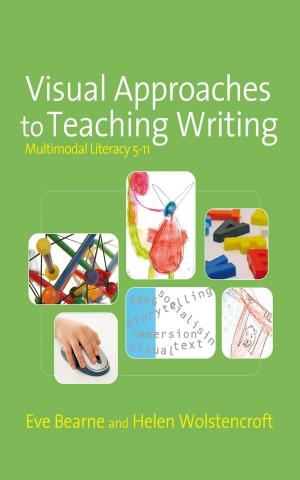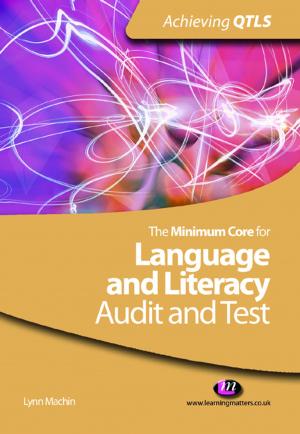Teaching Computing Unplugged in Primary Schools
Exploring primary computing through practical activities away from the computer
Nonfiction, Reference & Language, Education & Teaching, Elementary| Author: | ISBN: | 9781473988224 | |
| Publisher: | SAGE Publications | Publication: | October 18, 2016 |
| Imprint: | Learning Matters | Language: | English |
| Author: | |
| ISBN: | 9781473988224 |
| Publisher: | SAGE Publications |
| Publication: | October 18, 2016 |
| Imprint: | Learning Matters |
| Language: | English |
Teaching primary computing without computers?
The Computing curriculum is a challenge for primary school teachers. The realities of primary school resources mean limited access to computer hardware. But computing is about more than computers. Important aspects of** the fundamental principles and concepts of computer science** can be taught without any hardware. Children can learn to** analyse problems and computational terms** and apply computational thinking to solve problems without turning on a computer.
This book shows you how you can teach computing through ‘unplugged’ activities. It provides lesson examples and everyday activities to help teachers and pupils explore computing concepts in a concrete way, accelerating their understanding and grasp of key ideas such as abstraction, logic, algorithms and data representation. The unplugged approach is physical and collaborative, using **kinaesthetic **learning to help make computing concepts more meaningful and memorable.
This book will help you to elevate your teaching, and your children's learning of computing beyond the available hardware. It focuses on the building blocks of understanding required for computation thinking.
Teaching primary computing without computers?
The Computing curriculum is a challenge for primary school teachers. The realities of primary school resources mean limited access to computer hardware. But computing is about more than computers. Important aspects of** the fundamental principles and concepts of computer science** can be taught without any hardware. Children can learn to** analyse problems and computational terms** and apply computational thinking to solve problems without turning on a computer.
This book shows you how you can teach computing through ‘unplugged’ activities. It provides lesson examples and everyday activities to help teachers and pupils explore computing concepts in a concrete way, accelerating their understanding and grasp of key ideas such as abstraction, logic, algorithms and data representation. The unplugged approach is physical and collaborative, using **kinaesthetic **learning to help make computing concepts more meaningful and memorable.
This book will help you to elevate your teaching, and your children's learning of computing beyond the available hardware. It focuses on the building blocks of understanding required for computation thinking.















